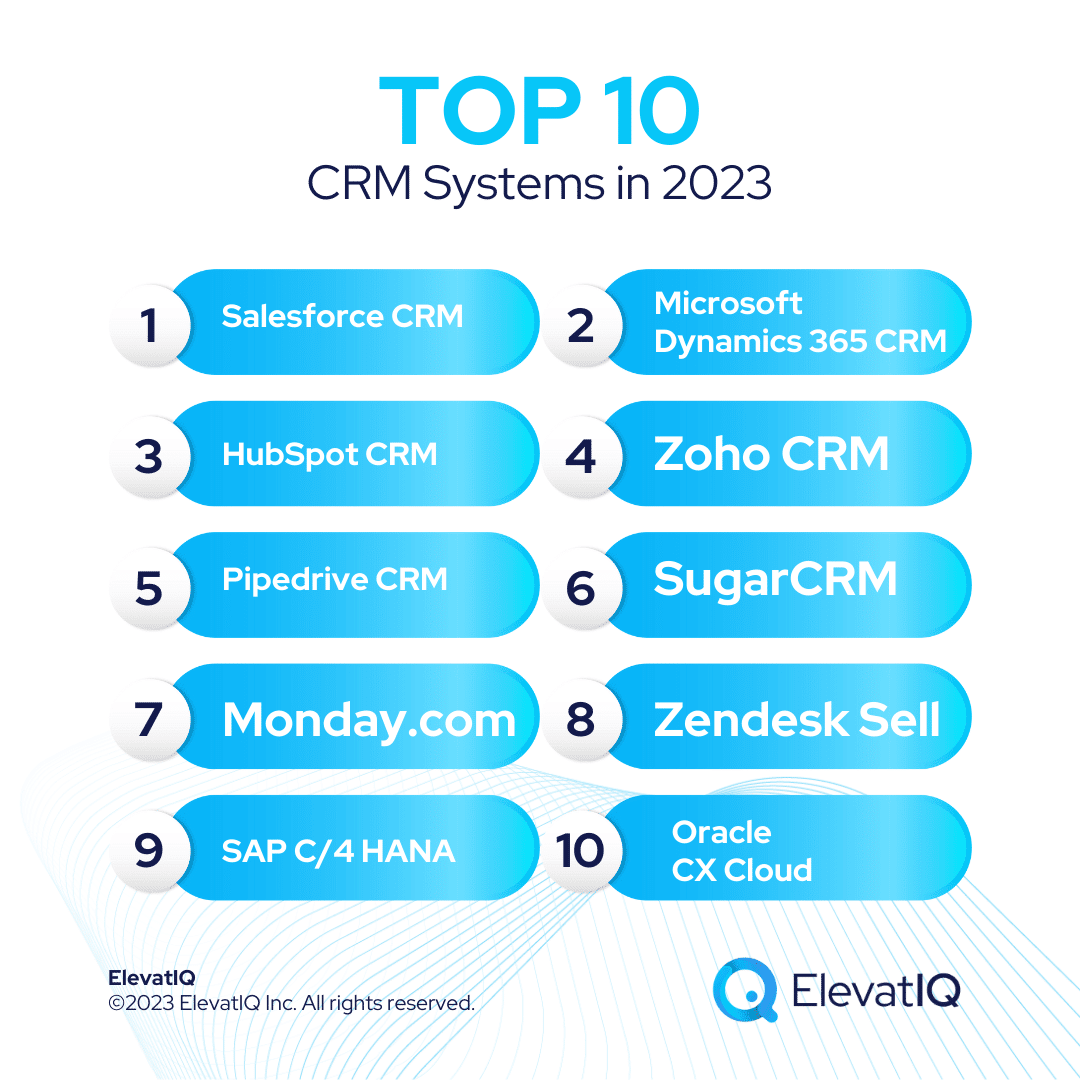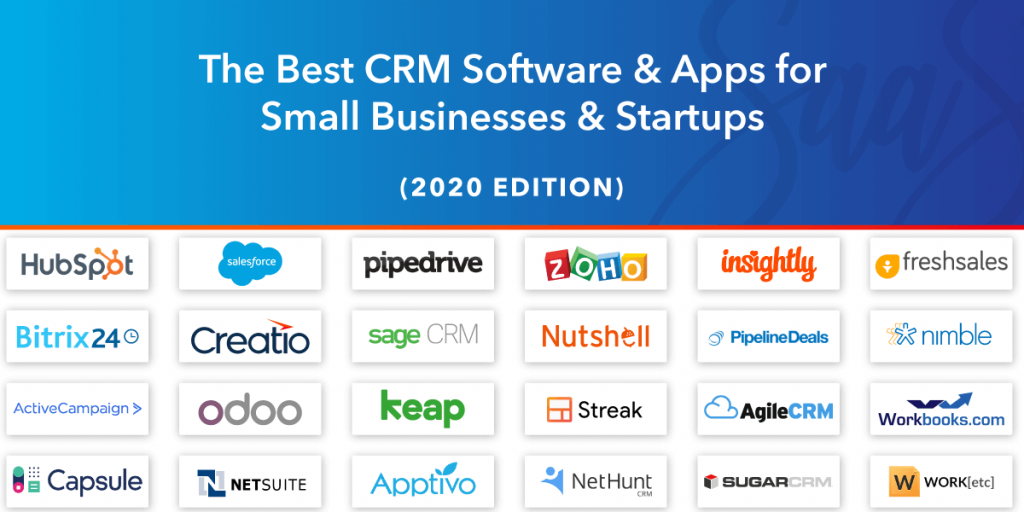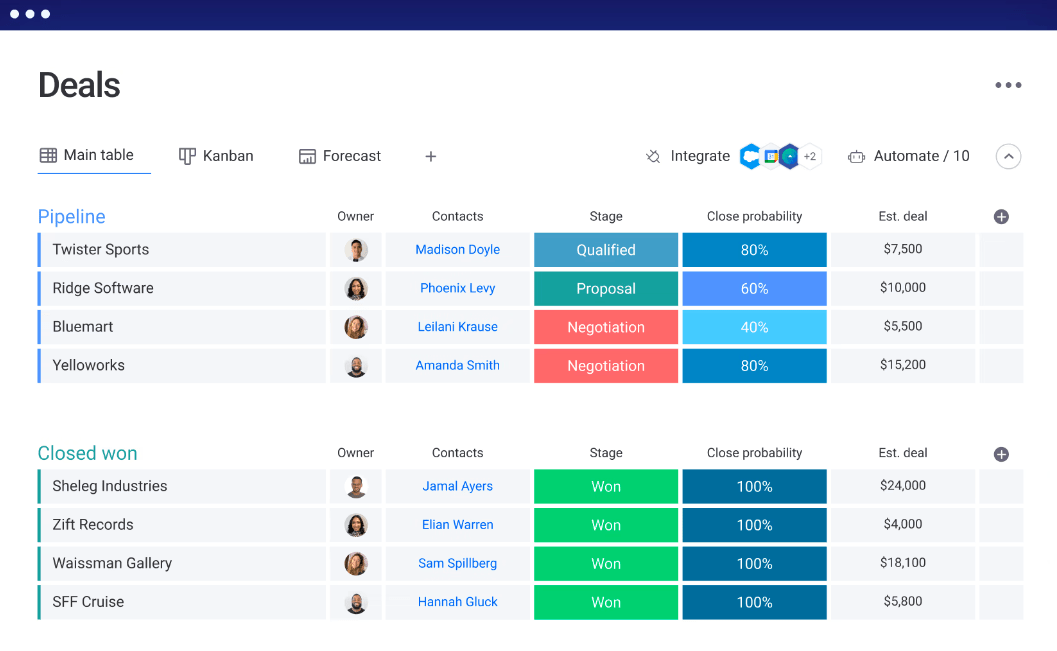Crm system best – In today’s competitive business landscape, the adoption of a robust CRM system has become essential for organizations seeking to enhance customer relationships, streamline sales processes, and drive growth. Join us as we delve into the realm of CRM systems, exploring their benefits, features, and best practices to empower your business with the tools it needs to succeed.
Definition and Overview

A Customer Relationship Management (CRM) system is a software application that helps businesses manage and track their interactions with current and potential customers. It provides a centralized platform for storing and organizing customer data, managing sales and marketing activities, and tracking customer support interactions.
The history of CRM systems can be traced back to the early days of computing, when businesses began using databases to track customer information. However, the first true CRM system was not developed until the late 1980s. Since then, CRM systems have evolved significantly, with the advent of new technologies such as the internet and cloud computing.
Key Functions of a CRM System
CRM systems typically offer a wide range of features and functionalities, including:
- Customer data management: Store and organize customer information, such as contact details, purchase history, and communication preferences.
- Sales management: Track sales opportunities, manage customer accounts, and generate sales reports.
- Marketing management: Plan and execute marketing campaigns, track campaign performance, and generate leads.
- Customer support management: Track customer support interactions, resolve customer issues, and provide self-service options.
- Reporting and analytics: Generate reports and dashboards to track key metrics and identify trends.
Benefits and Advantages

Implementing a CRM system can provide numerous benefits for businesses. These benefits can range from improved customer relationships to increased sales performance.
One of the primary benefits of CRM systems is their ability to improve customer relationships. CRM systems allow businesses to track customer interactions, preferences, and history, which can help businesses provide more personalized and tailored experiences for each customer. This can lead to increased customer satisfaction and loyalty.
Sales Performance
In addition to improving customer relationships, CRM systems can also help businesses improve their sales performance. CRM systems can help businesses track sales pipelines, manage leads, and close deals more efficiently. This can lead to increased sales revenue and profitability.
Features and Capabilities
CRM systems offer a wide range of features and capabilities designed to enhance customer relationships and streamline business processes.
These features can be categorized into the following areas:
Contact Management
- Centralized storage of customer contact information, including name, address, phone number, email address, and social media profiles.
- Segmentation and filtering of contacts based on demographics, firmographics, and behavioral data.
- Tracking of customer interactions, such as phone calls, emails, and meetings.
- Automated reminders and follow-ups to nurture customer relationships.
Sales Automation
- Management of sales pipelines and tracking of customer progress through the sales cycle.
- Lead generation and qualification tools.
- Automated workflows for tasks such as sending proposals, scheduling appointments, and generating invoices.
- Sales forecasting and analytics to predict revenue and identify opportunities.
Marketing Automation
- Segmentation and targeting of customers based on demographics, interests, and behaviors.
- Creation and execution of marketing campaigns across multiple channels, such as email, social media, and paid advertising.
- Tracking of campaign performance and lead generation.
- Automated lead nurturing sequences to convert prospects into customers.
Customer Service
- Centralized tracking of customer support tickets and inquiries.
- Multi-channel support options, such as phone, email, live chat, and social media.
- Knowledge base and self-service tools to empower customers to resolve issues independently.
- Customer satisfaction surveys and feedback collection to improve service quality.
Types of CRM Systems

CRM systems can be classified into different types based on their deployment models. The three main types are on-premise, cloud-based, and hybrid systems. Each type has its advantages and disadvantages, and the choice of which type to use depends on the specific needs of the organization.
On-Premise CRM Systems
- Deployed and hosted on the organization’s own servers
- Requires the organization to purchase and maintain the hardware and software
- Provides greater control and customization options
- Can be more expensive to implement and maintain
Cloud-Based CRM Systems, Crm system best
- Hosted by a third-party provider over the internet
- Organizations pay a subscription fee to access the software
- Provides scalability, flexibility, and ease of use
- May have limited customization options
Hybrid CRM Systems
- A combination of on-premise and cloud-based systems
- Provides the benefits of both deployment models
- Can be more complex to implement and manage
Implementation and Best Practices

Implementing a CRM system effectively is crucial for maximizing its benefits. Follow these steps and best practices to ensure a successful implementation.
Step-by-Step Guide to Implementation
- Define goals and objectives:Determine the specific business outcomes you aim to achieve with the CRM system.
- Select the right vendor:Evaluate different vendors based on their features, capabilities, and industry expertise.
- Data migration and integration:Import existing customer data from various sources into the CRM system.
- User training and adoption:Train employees on how to use the CRM system effectively and encourage its adoption.
- Monitor and evaluate performance:Track key metrics and gather feedback to measure the effectiveness of the CRM system and make necessary adjustments.
Best Practices for Effectiveness
- Centralize customer data:Consolidate all customer interactions and data into a single, accessible platform.
- Automate processes:Leverage automation features to streamline repetitive tasks and improve efficiency.
- Personalize customer experiences:Tailor interactions based on customer preferences and behavior to enhance engagement.
- Integrate with other systems:Connect the CRM system with other business applications, such as marketing and sales tools, to provide a comprehensive view of customer data.
- Foster a data-driven culture:Encourage data analysis and use insights to make informed decisions and improve customer relationships.
Integration and Data Management
Integrating CRM systems with other business applications is essential for streamlining processes and improving efficiency. By connecting CRM with ERP, marketing automation, and other systems, businesses can automate data exchange, reduce manual errors, and gain a comprehensive view of customer interactions.
Managing and protecting customer data in CRM systems is crucial for maintaining data integrity and compliance. Best practices include implementing data security measures, such as encryption and access controls, establishing data governance policies, and regularly backing up data to prevent loss.
Data Integration
Integrating CRM systems with other applications allows businesses to:
- Automate data exchange between different systems, reducing manual data entry and errors.
- Create a single, centralized view of customer data, providing a comprehensive understanding of customer interactions.
- Streamline processes by automating tasks that require data from multiple systems, such as order fulfillment or customer service.
Data Management and Security
To ensure data integrity and compliance, businesses should implement best practices for managing and protecting customer data in CRM systems, including:
- Implementing data security measures, such as encryption, access controls, and regular security audits.
- Establishing data governance policies to define data ownership, usage, and retention.
- Regularly backing up data to prevent loss in case of system failures or data breaches.
Trends and Future of CRM

The customer relationship management (CRM) industry is constantly evolving, with new technologies and trends emerging all the time. These trends are having a significant impact on the way businesses interact with their customers, and they are expected to continue to shape the future of CRM in the years to come.
One of the most important trends in CRM is the increasing use of artificial intelligence (AI). AI-powered CRM systems can automate many tasks, such as lead generation, customer segmentation, and personalized marketing. This can free up sales and marketing teams to focus on more strategic initiatives.
Another major trend is the move to cloud-based CRM systems. Cloud-based CRM systems are more flexible and scalable than on-premise CRM systems, and they can be accessed from anywhere with an internet connection. This makes them ideal for businesses that have remote teams or that are looking to grow quickly.
In addition to AI and cloud computing, other trends that are expected to shape the future of CRM include the use of big data, the Internet of Things (IoT), and social media. These technologies will give businesses new insights into their customers’ behavior, and they will enable them to create more personalized and engaging customer experiences.
The Future of CRM Systems
The future of CRM systems is bright. As technology continues to evolve, CRM systems will become even more powerful and sophisticated. They will be able to automate more tasks, provide more insights into customer behavior, and create more personalized and engaging customer experiences.
In the future, CRM systems will be essential for businesses that want to succeed. They will help businesses to attract and retain customers, increase sales, and improve customer satisfaction.
End of Discussion
As we conclude our exploration of CRM systems, it is evident that they are a powerful tool for businesses of all sizes. By implementing a CRM system, organizations can gain a 360-degree view of their customers, automate their sales and marketing processes, and improve their overall operational efficiency.
Embrace the power of CRM technology and unlock the potential for exceptional customer experiences and business growth.
Answers to Common Questions: Crm System Best
What are the key benefits of implementing a CRM system?
CRM systems offer numerous benefits, including improved customer relationships, streamlined sales processes, increased productivity, and enhanced decision-making capabilities.
What are the different types of CRM systems available?
CRM systems can be classified into three main types: on-premise, cloud-based, and hybrid systems. Each type has its own advantages and disadvantages, depending on the specific needs of the organization.
How can I choose the right CRM system for my business?
Selecting the right CRM system requires careful consideration of factors such as business size, industry, and specific requirements. It is recommended to consult with a CRM expert or conduct thorough research to identify the system that best aligns with your objectives.